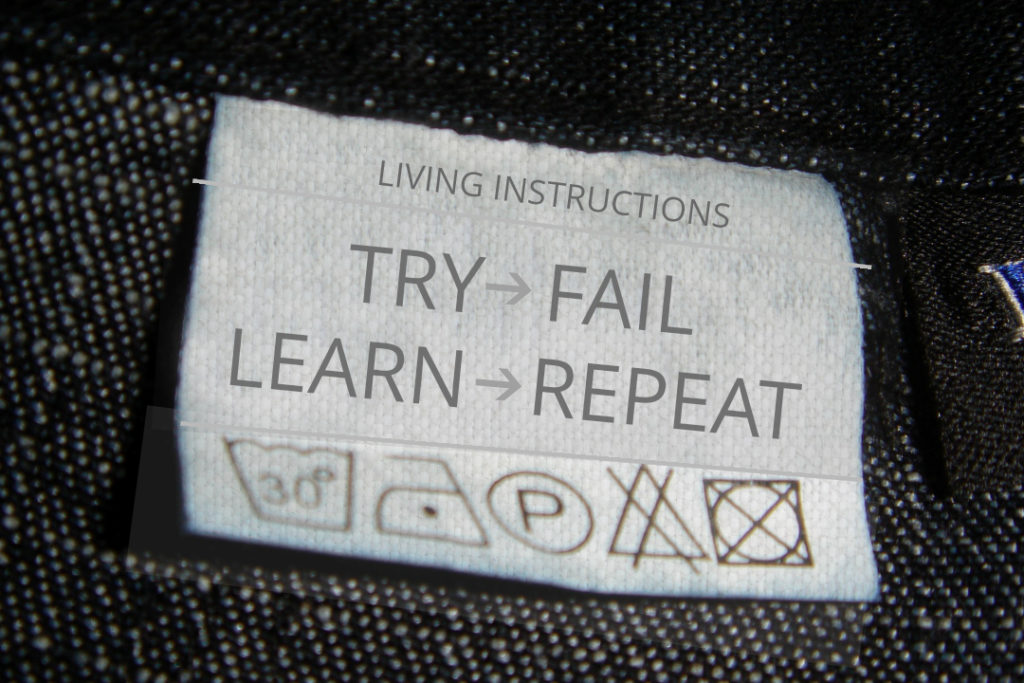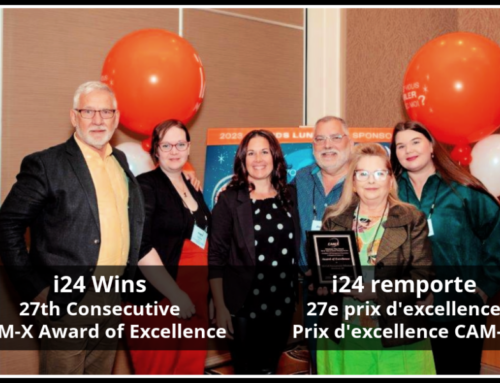
The only cure for failure is death.
If you are a living, salient being, you encounter failure many times.
It defines how we define ourselves and see ourselves as part of our circle of friends and coworkers.
“Remember that failure is an event, not a person. – Zig Zigler”
In the technology industry, “fail often, fail fast” is almost a mantra.
It’s understandable as their job is to always push the envelope. You can’t do that without risking that many tries won’t result in many failures.
If you’re in a conservative sector – like banking or insurance – embracing failure is going to come with a lot more at risk.
Every decision involves some risk. Taking risks is the price we pay for innovation whether it’s a new app or a better way to serve customers.
Regardless of our sector, we should encourage “intrapreneurs” in our workplace to do what they’re hardwired to do – look for better solutions.
Failure makes us smarter
A Scientific American study explains how our brains expand when we make a mistake. (Simon Casuto, in The key to Workplace Culture Success.)
“…your brain begins compiling information about the experience and actually gets bigger throughout the learning scenario. It does return to close to its original size but retains new neural pathways and compiles the key takeaways from trial and error. Making mistakes matures the brain. This results in more efficient synapses and fundamentally altered neurons. In short, failure can actually make you smarter.”
That’s why lessons learned through trial and error tend to stick with us.

How to create a culture that embraces failure
While failure will never be your goal, your goal will never be achieved without it.
How do you create a culture where mistakes are embraced instead of penalized?
Leadership
Business culture always comes from the top.
If you give employees the confidence to try new things and handle their mistakes in a healthy manner, the business, (like our brains, will expand). While the initiative may not bear fruit, the tree gets another root.
How do we instil a culture that doesn’t punish failure?
Lead by example.
Take risks, try new solutions and be honest about the results. If it fails, find out why and involve others in finding a way to improve the idea.
Encourage transparency.
Employees should feel comfortable expressing ideas and any mistakes they make. Transparency helps reduce the tendency to hide and possibly exacerbate the error. Being transparent strengthens emotional ties not only among your team but you clients as well.
Encourage “Fast Failure”.
If an employee wants to try something new that has a chance of failure, it’s best to encourage that it be done quickly. It should be done in progressive stages that can be analyzed at each step. If the project looks like it will be unsuccessful, then there is time to move on without having invested too much time and resources.
If there’s a cure for this…
At the top of this post, I said that the only cure for failure is death.
If we think of failure as a manageable, chronic condition, we do have an antibody.
Resilience turns failure into opportunity.
Some are born resilient. You know the type. Nothing phases them. They pick themselves up, dust themselves off and start all over again.
Others need to learn how to become more resilient.
'You never know how strong you are until being strong is the only choice you have.'Click To TweetHow can we build our resilience?
Accentuate the Positive
Shit happens. Somewhere in all this manure, there must be a pony.

Don’t dwell on the negative.
“Resilient can experience negative and positive emotions even in difficult or painful situations. When not-so-resilient people face difficulties, all of their emotions turn negative. If things are good, they feel good, but if things are bad, they feel horrid… “Barbara Fredrickson, PhD

Curiosity feeds the cat
Curiosity is the opposite of defeatism. Resilient people respond to problems by asking themselves, “What’s the solution? What can I learn from that?”.
Healthy Body, Healthy Mind
It’s important to maintain good physical and mental health.
This gives you the strength to handle the stress that comes with disappointment and failure.
1- Take mental breaks:
It can be formal meditation or just daydreaming.
“This helps keep stress chemicals at bay, reducing the likelihood of feeling, or becoming, overwhelmed and reactive.”
2 – Go outside: “
“…spending just 20 minutes outside in nice weather leads to more expansive and open thinking.
3 – Eat healthily:
Ever notice how stress makes you hungry?
When stress is chronic, it leads to high levels of the stress hormone, cortisol. Cortisol triggers cravings for salty, sweet, and high-fat foods—foods that give you a burst of energy and pleasure.
That’s why they call it comfort food.
Unfortunately, the pleasure is short-lived. The long-term negative effects are weight gain, poor health, and low self-esteem.
4 – Shake it off:
Exercise is not only a great distraction from your worries, it’s also great for building confidence and your overall health.
- Maintain a sense of humour
There’s a reason emergency room staff and coroners have “sick” senses of humour. They work in extreme stress environments where gallows or black humour is a prime coping mechanism.
The ability to not take yourself too seriously helps avoid taking failure personally.
- Get some wind beneath your wings
Don’t go it alone. Tap into your support network. Take a step back from the trees and look at the whole forest. Friends will help you do that.
'Know the difference between having big problems & making problems big.”Click To TweetUnless you feel confident enough to fail, you will lack the experience to succeed.


As part of my marketing web series, The Ray2Go Show, we did a panel discussion with the Ray2Go panel on the subject of failure. Is it All That It’s Cracked Up to Be?
Failure touches all of us at several points in our lives. How we deal with it can determine the level of success we eventually reach.
The LunchBunch panel is B.L. Ochman, Jessica Dewell, Randy Bowden, and Scott Scowcroft.
If you would rather just listen while you do other things – you can hear the podcast version on Soundcloud.














[…] award, there is little satisfaction in coming close. The consolation prize is the lesson learned: failure makes you […]
Awesome, Ray! You have assembled together a masterpiece on motivation. It’s motivating, inspiring and an excellent reminder on many things which we know but forget during the daily wear and tear of life.